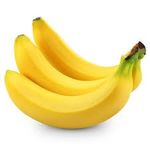Healthy Eating Tip of the Month October 2020
←
→
Page content transcription
If your browser does not render page correctly, please read the page content below
Nutrition is critical for fueling and recovering from physical activity.
Optimal nutrition is a key component to maximize your performance in the gym,
your annual 5k, and your weekly flag football games.
Your nutrition plan should be individualized and based on your health status,
fitness goals, and types of exercise and physical activities.
Whether you are exercising for weight loss, general health, or looking to build
muscle and improve performance, having a basic understanding of nutrition is
important.
What is a carbohydrate?
Carbohydrates (carbs) are a macronutrient
found in foods such as grains, fruits,
vegetables, and dairy products.
Why do I need to eat carbohydrates?
Carbs are the primary fuel for your “engine”
(your muscles) during exercise.
The harder your engine, or muscles, are working, the
more fuel (carbs) you need to keep going.
When you eat foods containing carbs, they are Mini bagel: ~22g carbs
broken down into glucose. Glucose is stored in the
muscles and liver as glycogen and is quickly released
during exercise.
1 cup cooked oatmeal:
~27g carbs
Medium banana:
~27g carbsWhat is a protein?
Protein is a macronutrient found in meats,
fish, eggs, tofu, beans/legumes, and dairy
products.
Why do I need to eat protein?
Protein builds, maintains, and repairs your muscles and other body tissues.
After exercise, it is important to consume both protein and carbohydrates to
help repair and rebuild your muscles and replenish glycogen stores.
Consume a combination of protein and carbs within 60 minutes post-workout.
Plain Greek yogurt: ~17g
per container
Egg: 6g
When and what should I eat before and after a workout?
When it comes to eating and exercise, everyone is different and will require a
different plan to help fuel their workouts and recover.
Use trial and error, and pay attention to how you feel during and after your
workout. Recognizing how your body reacts will allow you to adjust your pre- and
post-exercise eating habits to ones that work best for you.
As a general rule: Consume combination of protein and carbs 1-4 hours
pre-workout and within about 60 minutes post-workout.
Large meals: 3-4 hours before exercising.
Small meals or snacks: 1-2 hours before exercising.How much protein should I eat?
Depending on the type, duration, and intensity of your workout, the
recommendation for protein intake is:
Eating a balanced diet based on
0.8 g/kg/day for maintenance protein recommendations
1.2-1.7 g/kg/day to increase muscle mass does not require additional
protein supplementation.
Consuming excessive protein may result in
dehydration or weight gain. Do not overdo it!
How many carbohydrates should I eat?
Again, this depends on the type and in particular, the duration of exercise.
During endurance exercise (>2 hours), your glycogen stores are used up.
You may experience declines in performance and fatigue.
Pay attention to these signs! If you are exercising for long durations, consider
consuming a source of carbohydrates during your workout.
Why do I need to drink water?
During exercise, your body loses water as sweat to stay cool. If this fluid is not
replaced, you may become dehydrated.
Dehydration can result in decreased performance. Sever dehydration can be
dangerous.
Signs of dehydration include:
• Dark urine, decreased urine volume
If you are thirsty, you are
• Muscle cramps
• Nausea/vomiting already dehydrated!
• Chills
• Dizziness, light-headedness
• Clammy skin, flushed facePre-workout snack ideas: Post-workout snack ideas:
1) PB&J 1) Greek yogurt
2) Fruit (bananas, apples, grapes) 2) 6-8 oz fat-free chocolate milk
3) 100 calorie granola bar 3) Pita with hummus
4) Oatmeal 4) Pretzels with peanut butter
5) Mini bagel 5) Cheese stick and crackers
Exercise burns fewer calories
than you may think. Be mindful and intentional
with what you are consuming
before, during, and after your
Avoid “overdoing it.” workout so that you can help,
Rewarding your workout with less rather than hinder,
optimal food and drink choices your fitness and health goals.
may undo your efforts.
Use trial and error to figure out
Consuming adequate calories is what works best for you, your
crucial for muscle growth and body, and your goals.
exercise performance.
Consider working with a
Consult a doctor before starting a Registered Dietitian Nutritionist
new exercise regimen. to help you fine tune your own
nutrition plan and health goals!References:
Mohr CR. Timing Your Pre- and Post-Workout Nutrition. EatRight.org. https://
www.eatright.org/fitness/exercise/exercise-nutrition/timing-your-pre-and-post
-workout-nutrition. Published September 10, 2019. Accessed May 21, 2020.
Rosenbloom C. 3 Easy Tips for Fueling Your Workout without Overdoing It. Eat-
Right.org. https://www.eatright.org/fitness/sports-and-performance/fueling-
your-workout/3-easy-tips-for-fueling-your-workout-without-overdoing-it. Pub-
lished June 19, 2019. Accessed May 21, 2020.
Ryan M. Top Snacks for Runners. EatRight.org. https://www.eatright.org/
fitness/sports-and-performance/fueling-your-workout/top-snacks-for-runners.
Published April 9, 2019. Accessed May 21, 2020.
Thomas DT, Erdman KA, Burke LM. Position of the Academy of Nutrition and Di-
etetics, Dietitians of Canada, and the American College of Sports Medicine: Nu-
trition and Athletic Performance. J Acad Nutr Diet. 2016;116: 501-528.
Brooke Turner, MPH
Patient Food and Nutrition
Services
300 N. Ingalls Street
NIB NI8E20
Ann Arbor, MI 48109-5407
(734) 936- 5197You can also read

























































